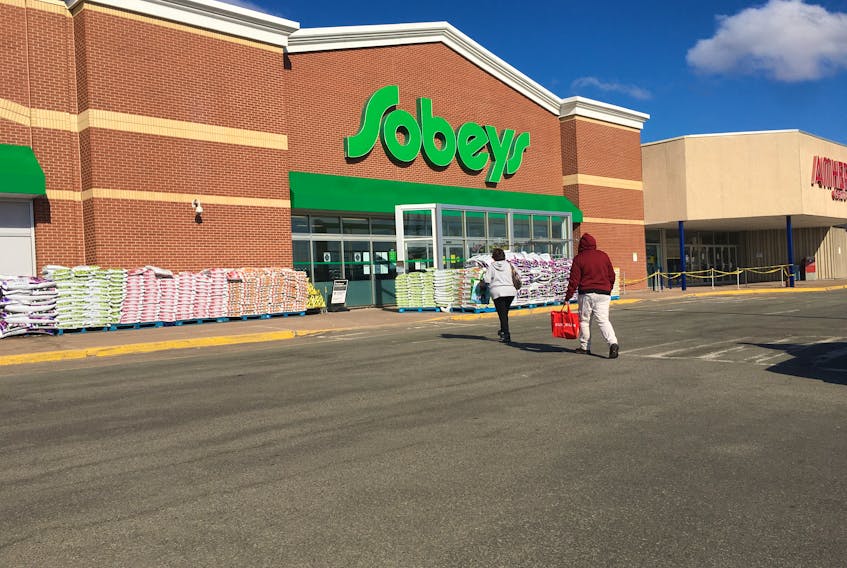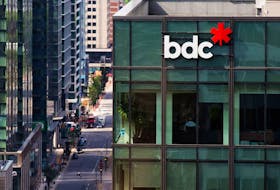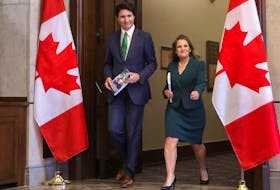Top Canadian grocers testified before a parliamentary standing committee last week to explain why all COVID-19 incentive programs were cancelled within hours. Most grocery store and distribution center employees were paid extra at the beginning of the pandemic, only to see wages now go back to pre-COVID levels. CEOs who testified where Loblaws’ Sarah Davis, Empire Company’s (Sobeys) Michael Medline, and Metro’s Eric Laflèche.
Witnesses testifying before parliamentary committees are often used as political puppets to support underlying agendas. This session was no different. Questions were all over the place. CEOs were questioned about farmers, wines, beer sales, and everything in between. Discussions on the safety protocols put in place in the stores were confusing at best. MPs posed questions that were likely inspired by lobby groups who had got to them, wanting to make a point. Grocers are an easy target and are disliked by many, starting with farmers. But to be fair, most farmers have no idea of how complicated food distribution can be. Loblaws, Sobeys, and Metro employ more than 500,000 Canadians. Such a workforce requires strategic coordination.
The two-hour session was simply painful. If it were a TV show, it would have been called “The Empress, The Player, and The Annoyed”. Davis, the Empress, stayed on point, despite the committee’s efforts to throw her off her game. While Medline played along as best he could, Laflèche was clearly irritated by the entire thing. Based on the tone of some of the remarks made by committee members, it is difficult to understand what was accomplished in 2 hours. There was no attempt to fully understand how food distribution works in Canada. At least, it was not apparent. Most importantly, it was not clear why only three companies were called to testify the cancellation of their COVID-19 pay programs, while no other companies such as Walmart or Save-On-Foods were summoned to testify. Retailers who did not offer any sort of pay premium were not summoned either.
There is a collective call for change, and all three CEOs who showed up in Ottawa are very much aware of it.
Many questions suggested that MPs suspected grocers were colluding. Fixing bread prices, which occurred over 14 years is one thing, but talking amongst grocers is something totally different. It is not illegal for grocers to talk amongst themselves. Farmers, processors, wholesalers, and grocers around the world do it all the time. It is called co-opetition. Many companies which compete against each other face similar challenges these days and need to share information, courteously. Climate change, plastics, currency fluctuations, energy costs, are some of the challenges that require information sharing within an industry. COVID-19 is the latest example. The intent is not to favourably change market conditions, but it is rather to understand how the sector itself can cope with unprecedented challenges faced by all simultaneously. Hockey players, for example, who compete against each other can be friends. It is the same in the food industry. Based on the evidence provided during the testimony, nothing suggests that grocers were in fact conspiring.
That said, companies missed an opportunity and should have admitted that these programs were ill-designed from the start. It was clear from the beginning that pandemic pay programs, also referred to as “Hero pay”, would not end well. If companies wanted to reward employees for their work, one-time bonuses would have been more appropriate, and not temporary salary increases. This is what happens in other sectors of our economy. Increasing payroll expenses by 10% to 15% would make most grocery stores unprofitable. In fact, even with current wages, the Canadian market is likely overstored, and many will close over the best year.
As for the committee itself, the lack of respect towards leaders in the food industry was irritating. Anyone who appreciates the work that was done for weeks during the pandemic would believe it was nothing short of a miracle. Employees played a very important role, no doubt, but so did leadership. Grocers are not perfect. One may dispute decisions made by companies and how employees are treated, but salaries and working conditions are set by relying on a high-volume, low-margin business model. It has been like this for years. Higher wages would likely result in higher food prices, so MPs need to be careful with what they wish for. Food security in Canada is a paramount issue, especially now. The pandemic has made us realize that the model needs modernization.
There is a collective call for change, and all three CEOs who showed up in Ottawa are very much aware of it. They have some work to do. But the government needs to play a part as well. A guaranteed income for all has only gained currency throughout this pandemic. Let us hope the crisis we have all experienced will not go to waste.
Sylvain Charlebois is senior director of the Agri-Food Analytics Lab at Dalhousie University.








